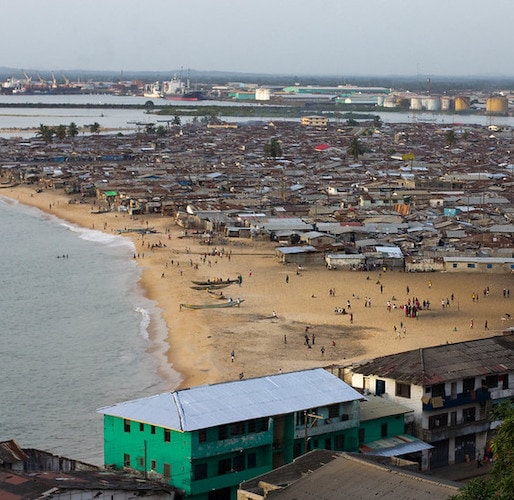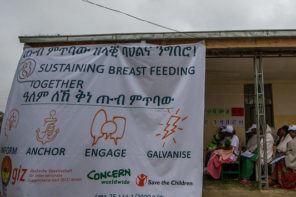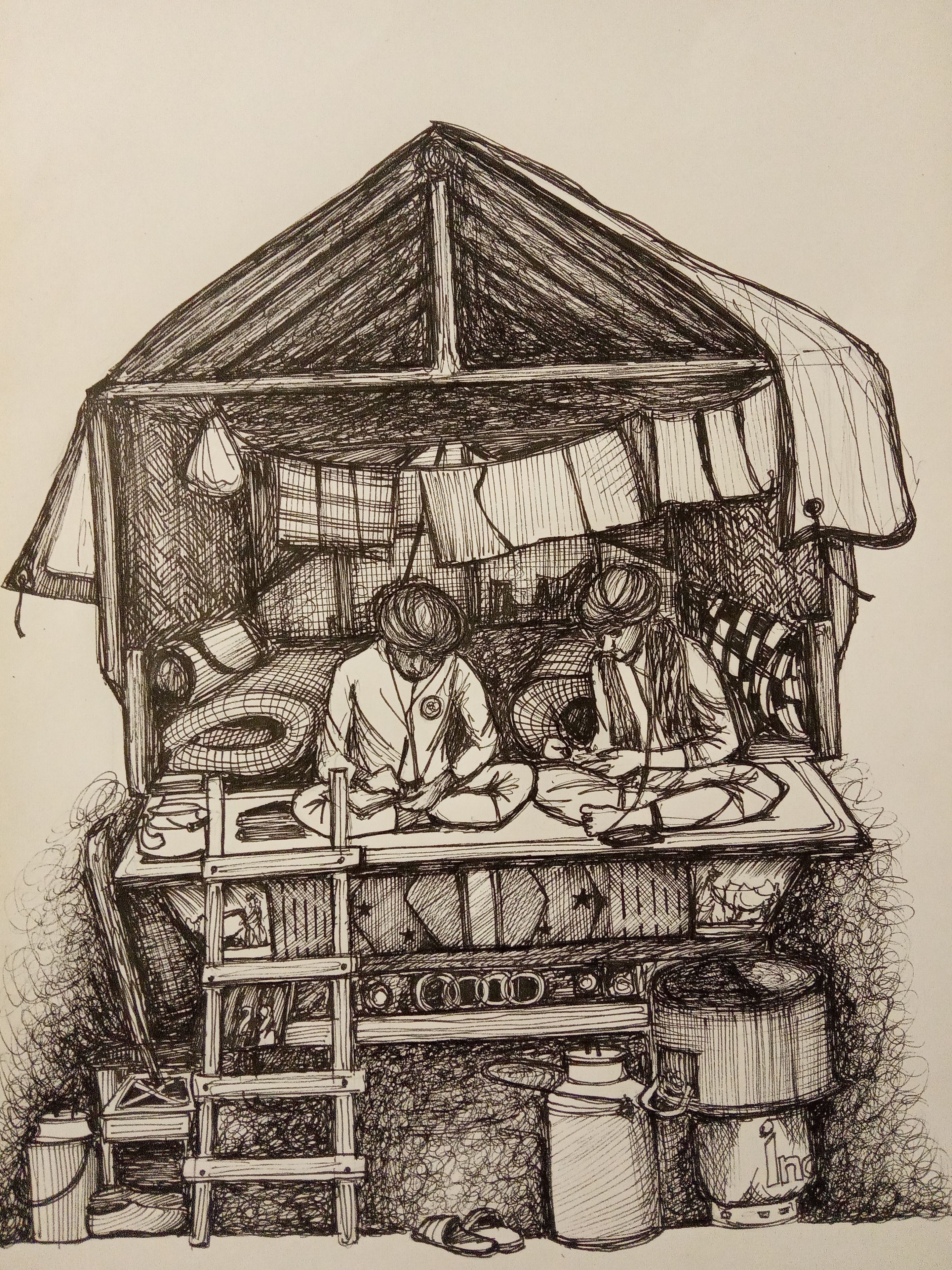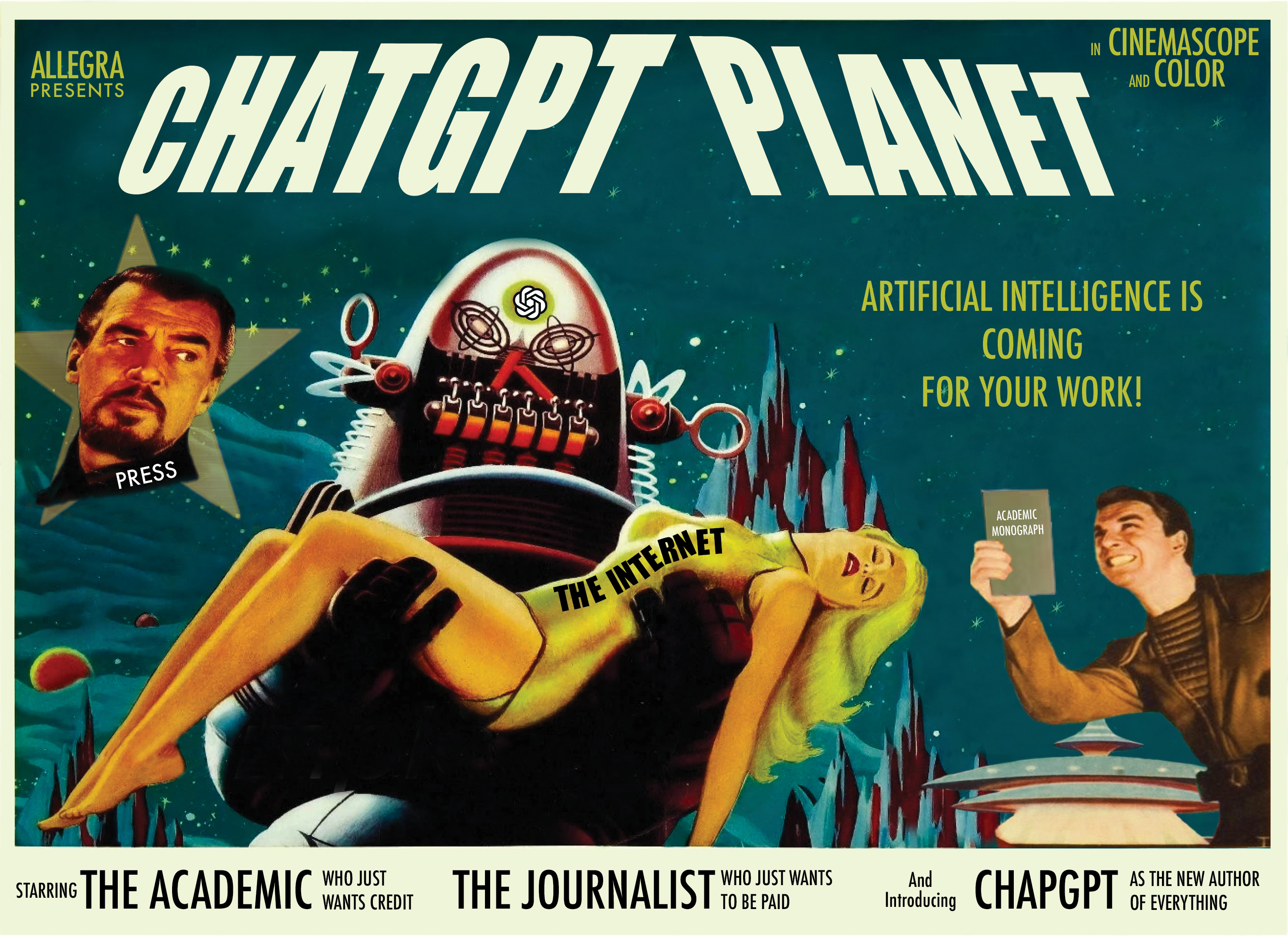ff
1.
There are two twins sat on the beach but one is farther up the shore, closer to West Point, or right inside it, depending on which twin you are focusing on at the time. Do not yet pick a side. For now, we will remain impartial. Both twins are sat with their legs crossed beneath them. They both have dark hair, yellowing teeth, and hardened hands. The one in front wants to make a living for himself, earnestly. His calloused hands flip the discoloured pages of a tattered book as he memorizes ways to repair broken radios. The other brother wants to rob you blind. The waves crash on the shore. The sunlight shines through the harmattan haze. Do not yet pick a side.
2.
There are two twins sat on the beach but one is farther up the shore. We’ll call them John. And because the first John is in front let’s consider him older and wiser. He is thus responsible for earning money and taking care of the family. Forward-thinking and ethically-minded, this John will always think of what’s right and wrong when it comes to earning income. Unfortunately for him, it doesn’t always come down to right and wrong when it’s a matter of life and death. John is thinking of his brothers and sisters in their shabby hut in the slums on the shore behind him. He is thinking that only if he could find permanent employment, he would be able to not only feed them but send them to school, then they could enjoy a childhood unlike his own: educated, limitless, free.
3.
There are two twins sat on the beach but one is farther down the shore, closer to Mamba Point, or just before it, depending on which John you are. It could have been so beneficial – you read learn the skills and I will find the tools, what could be but never will be, the space between what is right and what is necessary – but neither John wants to be the other one. My name is John and I’m tired of you trying to pressure me. My name is John and I’m tired of you thinking you’re better than me. Listen, my man, I’m telling you I don’t want any trouble, I mean it, etcetera. Look, my man, you’re either with us or against us. They look the same but they are not the same. They want the same and they hate each other for it.
4.
Your name is John and somewhere down the shore your brother is standing against a palm tree, leaning back and waiting for you with a smug look on his face. O how he waits for you, Johnny-boy. O how, as usual, he waits with his arms crossed in front of him on the tree that is the in between, like the X in the sand to mark the hidden treasure, to keep this ritual from becoming ever lost. When he sees you, he moves toward you. When he reaches you, he clenches his fist and pummels it in your direction. It’s almost as if it moves in slow motion. You close your eyes, expecting impact, but the fist never reaches you. It hangs in the air between you. Hanging there like a threat. Or a promise.
5.
You are in an ordinary shack room with floors made of discarded cloth. You are on your back in between your smaller siblings looking up at the piece of aluminium that serves as the roof. The room is completely dark, save the sliver of moonlight the spills in between the gap between the aluminium sheets. Inside you hear your sister, snoring very softly. Outside you hear the voice of a man, screaming very loudly. The sound radiates through the aluminium, but you can’t make out all of the words. It almost sounds like John. Your heart begins to pound as you know this shelter can’t keep him out. Is it John? Is he calling to you? Is he coming for you? You’re not sure if it’s his voice or the fear taking over your subconscious. As your heart beats louder, the screams begin to fade into the night.
6.
Two brothers are fighting on the shore of the beach. They have fallen into the sand, leaving blood in their wake as they wrestle for control. Pieces of a shattered electronic device litters the ground around them. You watch through the tinted window of your parents’ Mercedes as your driver speeds by. You are fifteen years old and on your way to your American International school. Your father owns a telecom company. Your mother works for the Government. You have never had to worry about where your next meal would come from. You have never seen an interaction so violent or deliberate in your life. As they fight in the sand, it is clear they have forgotten about God, and God has certainly forgotten about them. The car moves faster. You fiddle with a loose string on your uniform. After a moment, you turn your head and look out of the other window.
7.
You are standing at a busy intersection with three men named John. One begs a passer-by for spare change, one performs a quick exchange in the form of a handshake, and the other mumbles to himself and stares at you in a way that makes you feel uneasy. All of you have families to feed. All of you left wherever you call home with empty pockets this morning. All of you know what it is to go to sleep hungry, multiple nights in a row. But none of you have access to legitimate work. All of you have been discarded by society. So, none of you have any other choice. All of you got to this intersection somehow and eventually, one of you will get to leave. Who decides which one of you is the right one?
8.
Let’s say this time, you were able to find enough parts to repair a broken radio. Let’s say this time, you knew for sure that it would sell for at least 20USD and that this would feed your family for at least a week. Let’s say this time, you felt a sense of hopefulness as you left your shack to go to the nearest technology store to sell it. For the first time since both of your parents died, you allowed yourself to smile. This time, everything seemed like it would work out. Until you were almost out of West Point and accosted by someone demanding your radio or your life. How would your younger siblings survive if you died protecting a radio? Who would provide for them? Your name is John and you’re not sure how much more you can take.
9.
Two brothers: one of them wants to live ethically. Two brothers: one of them just wants to live – by any means necessary. The time has come to pick a side. Morality or vitality? Right or wrong? Life or death? There is no in-between. You do not get another choice. You only get two choices; you only get two brothers. There are only two Johns. Pick one. This is how you find survival. Who do you want to be? John or John? Who do you have to be, John? You just wanted to protect your family from the outside world, but you don’t know where this world begins or ends. You wanted to find one safe place for them, a place where they could survive. You have not created this place yet. This place does not exist. You are here. You are in West Point. You are still right here.
10.
Your name is John and somewhere down the shore you see your brother. O how he walks toward you, Johnny-boy. O how this time, unlike the others, he walks straight toward you. Chin up, shoulders squared, unwavering. You clench your fist, but you don’t dare raise it. Something is different. Something has changed.
There are two twins standing on the beach, both of them under a palm tree. Maybe this can be beneficial – you learn the map, I find the tools, and we both go do what we have to do. What could, will now be. The coalescence of our skills and wants as we transcend the space between what is right and what is necessary. My name is John and I’m tired of fighting to survive. My name is John and I no longer wish to struggle. They are not the same but they are the same.
11.
There are two twins standing at the bottom of the hill that leads to Mamba Point Hotel, Shoulder to shoulder, regardless of which twin you are focusing on at the time. Both twins have made their choice. Both twins have to subsist by some means, or starve. They both Have dark hair, yellowing teeth, and hardened hands. The one on the left has given up his morality to preserve his vitality. He has a gun in his hands, it feels hot. The other one on the left has accepted this as the only way. He has a gun in his hands, it feels oily. Let’s say that what is right is the space between the two brothers and what is wrong is the space between the Two brothers. I will be all of them: John and John and John and John are sat on the beach, four fists pummelling in the air, four guns sweating in clammy hands. Two Johns want to live ethically, two Johns just want to survive, and all of these John’s are trying to tell you something.
Explanatory appendix
This poem was inspired by and follows the style of Richard Siken’s poem “You Are Jeff”. It seeks to illuminate elements of Loïc Wacquant’s article “Urban Marginality in the Coming Millennium”, Urban Studies, 36(10): 1639-1647 (1999), but transposing them to Monrovia, Liberia. The poem attempts to grapple with how accelerated economic growth in the richest neighbourhood of Mamba Point has led to the rise of urban inequality and marginality in one of the poorest slums of West Point, even though the two are less than 3km away from each other. The poem begins by establishing the idea of two brothers, both called John, on the beach in between West Point and Mamba point. Although they are initially identical, the reader is asked to choose between them as the different ways in which they seek to survive their poverty is revealed, ostensibly on the basis of what is morally right and wrong. The poem however slowly shows how the two brothers seek the same ends but through different means.
The poem puts forth the perspectives of both “Johns” and at one point introduces two additional Johns to reveal how urban exclusion can lead those who are marginalized to resort to different means by which to survive. It also does so to highlight the probability that those who have been excluded from the working class will most likely never find regular work again. Part 4 and 5 serve to depict how due to these new forms of marginality, there is little sense of community within slums. What should be a community of those in similar circumstances has evolved into an “empty space of competition and conflict, a danger-filled battleground for the daily contest of survival”, to quote Wacquant’s article. This is depicted in the first three parts as well, as the two Johns are jealous of each other, leading to violent confrontations.
Where Wacquant’s article does not go into depth of what daily life is like for those who are marginalized, my poem attempts to put the reader in the shoes of them. In each stanza of the poem, the reader is forced to be a bystander or a participant and in effect, one of the marginalized. This was done in an attempt to raise the question of which John are you, if there is even really a difference between the two Johns? Like Siken’s poem, this poem attempts to evoke questions that surround the choice of picking one of them. If the John you choose is you, what does that mean about you, and what choices would you make in a situation in which you don’t really have much of a choice? Finally, part 6 attempts to depict how those who are marginalized are often ignored not only by the government but those citizens who benefit from the marginalization of others, whether they are cognizant of it or not.
If the John you choose is you, what does that mean about you, and what choices would you make in a situation in which you don’t really have much of a choice?
Featured image by Brittany Danisch (Flickr, CC BY 2.0).








Brilliant!!
So proud of you for creating such a beautiful piece! 💞
Awesome 👏🏾 💯❤️